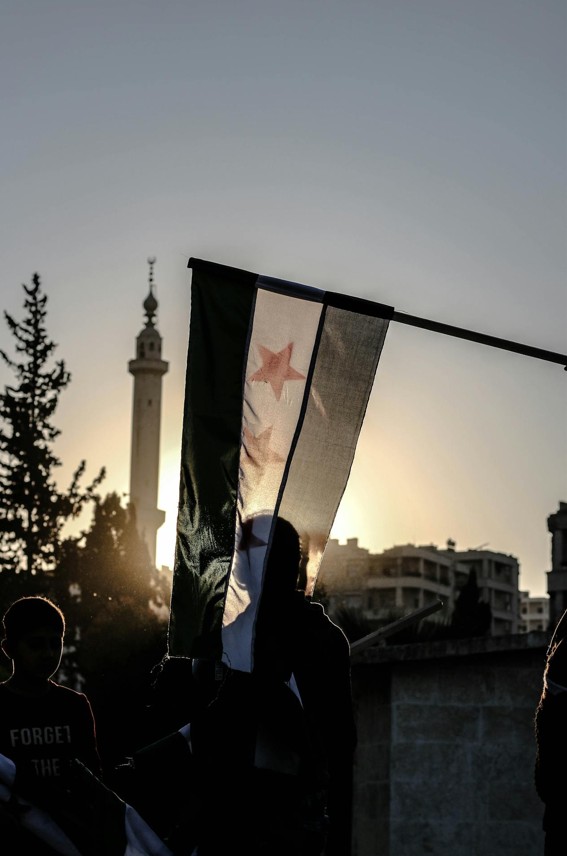The Syrian interim authorities must promptly, independently, impartially and effectively investigate the killings and other crimes committed against civilians in Suwayda, south of Syria, with a view to holding those responsible to account, the International Commission of Jurists (ICJ) said today.
From 13 July 2025 until a fragile ceasefire on 19 July, clashes opposing Sunni Bedouins – reportedly supported by elements aligned with the Syrian interim authorities – to the Druze community – members of a religious minority in the country – had resulted in the killing of around 1,120 people in the Suwayda governorate, as of 19 July, including 427 Druze fighters and 298 Druze civilians, and in the killing of 21 Sunni Bedouins and 354 security personnel on the side of the Syrian interim authorities, as well as in the displacement of an estimated 175,000 people. Videos published online showed unidentified men in military fatigues killing civilians hailing from the Druze community. Druze militias also perpetrated violent attacks against Bedouin neighbourhoods and villages, including by taking hostages, forcing many Bedouin civilians to flee.
“Perpetrators of atrocities must be held to account, regardless of their political affiliation,” said Saïd Benarbia, ICJ Middle East and North Africa Programme Director. “The interim authorities must ensure the protection of all religious minorities, including by investigating, prosecuting and punishing those responsible for the summary executions and other abuses to which they were subjected.”
On 31 July, the Syrian interim authorities formed a committee to investigate the events in Suwayda. The ICJ recalls that the authorities must ensure accountability for all crimes under international law committed by all sides. In order to bring about meaningful and sustainable justice and reconciliation, the transitional justice process initiated with decree No. 20 of 17 May 2025 – which provides for the establishment of a National Commission for Transitional Justice tasked with “uncovering the truth about grave violations caused by the defunct regime” – must be comprehensive and inclusive and bring truth, justice and redress for all victims.
Background
Since the ouster of former President Bashar al-Assad on 8 December 2024 and the establishment of a transitional government led by Ahmed Al Sharaa, the former commander of the Hayat Tahrir al-Sham armed group, Syria has seen an increase in sectarian violence, including through acts constituting crimes under international law, mostly between Sunni Muslims, on the one hand, and religious minorities, including Druzes, Alawites and Christians, on the other.
In the Suwayda governorate, tensions between Druzes, who make up the majority of citizens in Suwayda city, and Bedouins, who live on the outskirts of the city and are reportedly supported by the interim authorities, have been on the rise. Israel, who also has a Druze minority and has supported the Syrian Druzes, intervened in the hostilities on 16 July by launching drones strikes on Suwayda, as well as by bombing in and around government buildings in Damascus, including the Defence Ministry and the Presidential palace.
Between 6 and 10 March 2025, clashes between armed groups affiliated with Bashar al-Assad’s ousted regime and the interim authorities erupted in the coastal governorates of Latakia, Tartous, and in Hama. During the hostilities, more than 1,000 civilians, the majority Alawites – another religious minority in Syria, were allegedly extrajudicially executed. Alawites have often been perceived as being affiliated with the former regime of Bashar al-Assad, who himself hails from this community. Killings of Alawites were also reported in Homs. The attacks against Alawites were fueled by online hate speech, including through the circulation of a XIVth century old fatwa – a religious legal opinion – on social media, framing Alawites as infidels.
On 22 June, a gunman, reportedly affiliated to the Saraya Ansar al-Sunna – an armed group previously affiliated with Hayat Tahrir al-Sham – opened fire inside the Elias Christian Church, in Damascus, before detonating a suicide bomb killing at least 25 people and injuring 60.
Contact
Saïd Benarbia, Director, ICJ Middle East and North Africa Programme; t: +41 22 979 3800, e: said.benarbia@icj.org
Nour Al Hajj, Communications & Advocacy Officer, ICJ Middle East and North Africa Programme; e: nour.alhajj@icj.org





